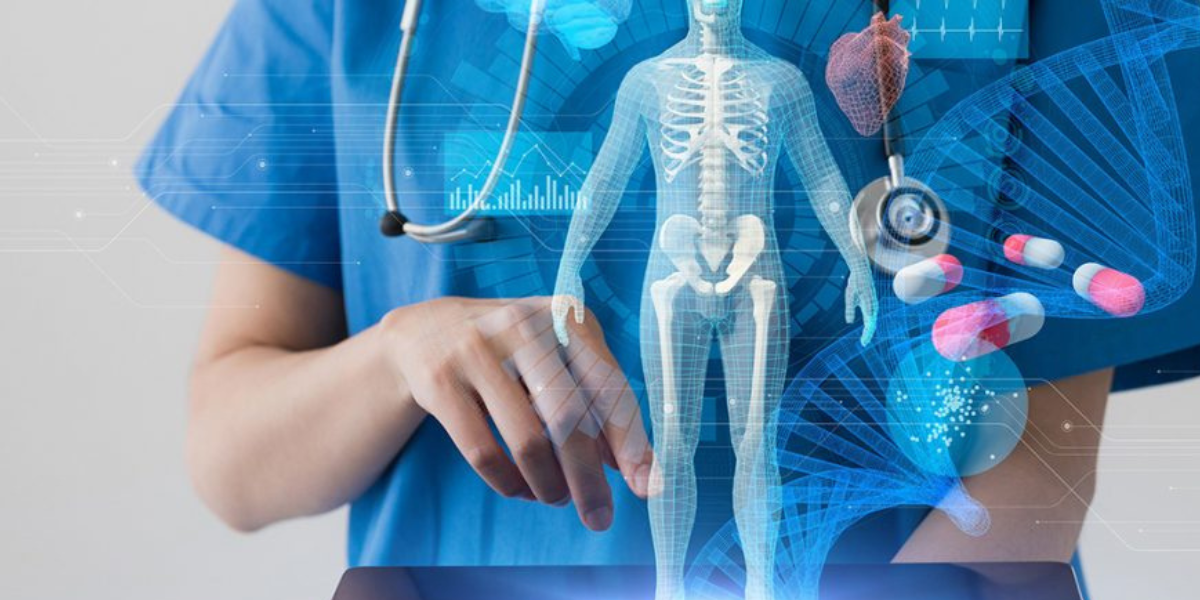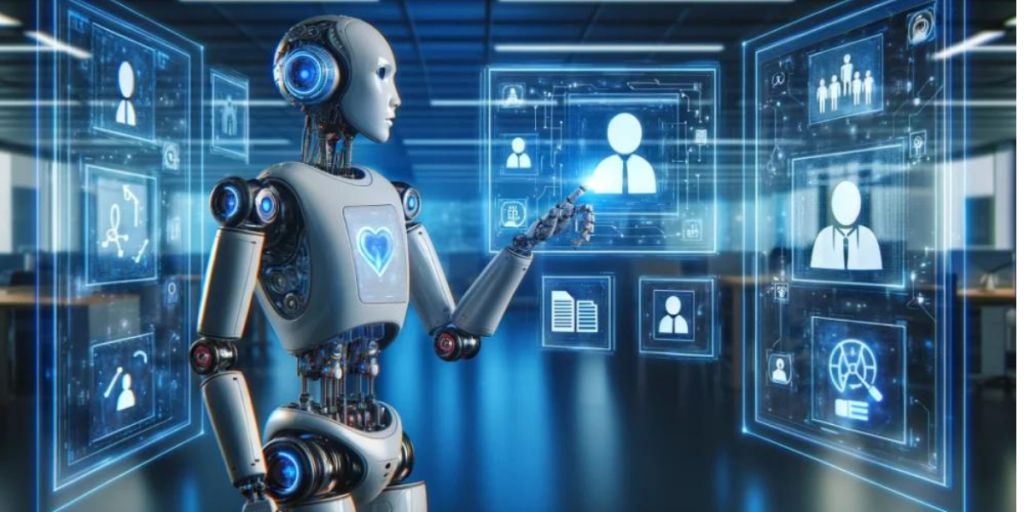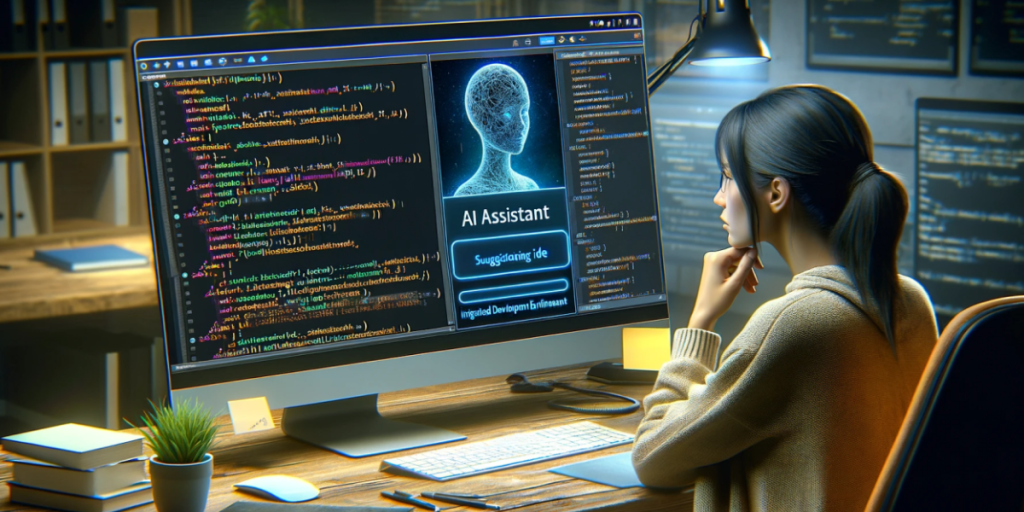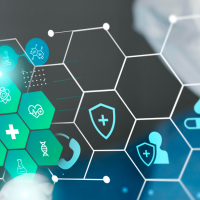Artificial Intelligence (AI) has rapidly transformed different industries, and the life sciences field is not exempt. AI in Life sciences has revolutionized medicine and biology, allowing scientists to utilize vast data to make precise forecasts. Using AI tools for biosciences has the potential to tackle complex medical problems and streamline the development of drugs, in addition to enhancing medical precision and decision-making in clinical settings.
Technological advancements in AI are expected to be made. As AI technologies mature and develop, they will bring more challenges and issues to consider AI Life Sciences applications. The growing use of AI for drug discovery, disease diagnosis, and individualized healthcare has driven this expansion. AI is a new technology that can speed up the research process, aid in identifying novel drug targets, and increase the efficacy of clinical tests.
In this piece, we’ll look at the importance of AI in life sciences and its applications across various areas. Therefore, to say that life sciences are going through a ‘period of transformation’ is an overstatement. Each month seems like it will introduce a breakthrough in AI for healthcare to the point that keeping pace is difficult.
AI’s Impact On The Life Sciences Market
Artificial Intelligence has rapidly revolutionized various industries, and the life sciences field isn’t one of them. Incorporating AI in biology and medicine has allowed scientists to use huge quantities of data, create precise forecasts, and address complex medical problems. The field of life sciences is seeing a significant increase in interest and investments in AI. The big pharma industry knows AI’s possibilities, and partnerships with AI businesses are increasing. AI can be leveraged to develop more potent drugs, allow robotic surgeries, recognize treatment-ready patients, and enhance patient results.
The report states, “The worldwide AI market for life sciences will be $7.09 billion before 2028, increasing at a compound annual (CAGR) of 25.23 percent. It means half of the 50 largest Bespoke Pharmaceuticals companies have entered into partnership or licensing agreements with AI companies.” Additionally, AI is enhancing the effectiveness of clinical trials by finding suitable candidates, anticipating potential adverse effects, and observing patient reactions immediately. This speeds up the drug development process by substantially reducing the time required and cost. For genomics, AI algorithms analyze genetic information quickly, which leads to advancements in the field of personalized medicine as well as targeted treatments.
In addition, AI-powered diagnostic instruments can improve diagnostic and prognosis tools, bringing hope to prompt intervention and improved patient treatment. The synergy between AI and the life sciences also allows biotechnology breakthroughs. AI models can predict protein structure and their interactions. This is crucial to designing new therapeutics and vaccines. Ultimately, using AI in the life sciences will improve the research and development process and pave the way to the dawn of a new phase in precise medicine that can transform treatments and patient care worldwide.
Benefits Of AI In Life Sciences
Artificial intelligence in the life science sector offers many possibilities and benefits. A few of the advantages of AI in the field of life sciences are:
Accelerating Research While Reducing Expenses
One of the main advantages of using Al in the life sciences is the ability to handle and analyze an enormous quantity of information more quickly than researchers and healthcare professionals. Accelerating data processing allows researchers and scientists to discover breakthroughs and new insights more quickly and speed up the research process.
Additionally, artificial intelligence within the field of life sciences is a great way to automate routine tasks. Automating workflows can speed up processes and reduce time spent on mundane tasks. Besides improving workflow efficiency, it can lower the cost of life science research because time and money are used more effectively.
Improved Accuracy Of Diagnosis
All models and systems can recognize patterns, trends, and other anomalies that a medical professional might be unable to detect. Because of their focus on specifics, using Al in life science may increase the accuracy of diagnostic tests. In particular, Al can identify early indications of illness, typically before symptoms become apparent.
Early detection of disease is crucial to treating diseases at their early stages. It could significantly improve the patient’s outcomes and reduce the cost of treatment. Additionally, since AI systems aren’t prone to fatigue or distracting factors, their diagnostic outcomes are highly quality.
Treatment And Medicine Recommendations That Are Personalized
Another benefit of artificial intelligence (AI) in life science is its capability to design individualized treatment plans and medicines using patient data. In addition, AI models also evaluate an individual’s likelihood of developing certain illnesses. Still, they also can be employed to spot patterns and irregularities in the information to identify which medications or treatments might be the best suited. Based on this data, health professionals can customize treatments and therapies for every patient’s particular requirements to maximize the treatment’s efficacy.
Predictive Analytics That Predict Outcomes For Patients
By analyzing patient information, including health history, lifestyle choices, and genetic and other environmental variables, Al can help identify those susceptible to developing particular illnesses or conditions before symptoms manifest. By analyzing these data, health professionals can initiate prevention strategies or early interventions like lifestyle modifications, targeted screenings, or medications to enhance patients’ outcomes.
AI Use Cases In Life Sciences 2024
Artificial Intelligence (AI) ‘s effect on life sciences can be seen for certain. Since the introduction of AI, the process of developing and discovering drugs has been speeded up, clinical trials are becoming more effective, and personalized medicine has become a standard procedure. This isn’t a far-off future; it’s taking place now, thanks to AI-powered technologies revolutionizing various areas of the life sciences.
Drug Discovery
Drug target development can be long, complex, and expensive, requiring screening various molecules. However, AI-driven systems can analyze massive amounts of biochemical data and discover patterns and connections that could help quickly and efficiently identify the most promising drug targets. AI helps optimize chemical compounds by predicting which are likely to work and reducing the number of substances that must be analyzed in the lab, reducing the time needed to develop new pharmaceuticals.
Additionally, machine learning (ML) can speed up clinical trials by identifying the patient groups likely to benefit from the new treatment. This could help cut down on the amount of time and expense involved in clinical trials and ultimately lead to faster drug approval and the delivery of lifesaving treatment to patients. With the advancement of technology and improvement, we could be witnessing even more incredible advancements in drug discovery and development. This will eventually lead to more efficient treatment options and better patient outcomes.
Clinical Research
Artificial intelligence’s increasing importance lies in its ability to plan clinical trials, estimate an appropriate sample size, implement them remotely, expand geographic coverage, reduce costs, and increase the probability of receiving exact and accurate information. An experiment demonstrated the efficiency of Natural Language Processing (NLP) in extracting information from clinical trial notes in free text.
It was found that NLP could identify the cause of adverse events in clinical trial documents with a high degree of precision and recall rate. The use of NLP during clinical trials could increase patient safety and lessen the burden on the clinical trial team by automating the process of extracting data so that they can concentrate on other duties.
Additionally, additional tools like Deep Learning and Optical Character Recognition (OCR) can also recruit patients through the analysis of textual information from medical records, gain knowledge from previous trials and applicants, and dynamically generate qualifying questions using chatbots. This results in the most accurate and pertinent data that can be effectively gathered and managed using algorithms technology and the digital infrastructure.
Prognosis And Diagnosis Of The Disease
AI has made significant advances in disease diagnosis and prognosis. Through the use of sophisticated algorithmic techniques, AI has been able to analyze large quantities of medical information. It can provide information that is used to diagnose diseases, and devise individual treatment plans.
AI and Machine Learning have also proven that they are effective in identifying features of images that aren’t recognized by our brains, which is why they are essential for cancer detection. An investigation by the National Cancer Institute in the US found that AI could help in prostate and cervical cancer screening. Also, identify specific gene mutations from cancer pathology scans.
Various commercial applications of AI are currently being offered in the marketplace. Additionally, AI has the potential to detect other issues, like diabetic retinopathy of the heart and others. The early detection of these dangerous diseases with AI-driven technology could lead to longer and better lives for those who live it.
Precision Medicine And Biotechnology
Within the biotechnology field, AI fosters innovation across various fields. From genome sequencing to precision medicine, AI-driven discoveries are changing the understanding of biological processes and customized treatment methods and customized treatment methods. Integrating AI technologies into life sciences technology speeds up research and opens up new therapeutic options.
The predictive and artificial intelligence (AI) processes create treatments according to a patient’s health history. Wearable devices, biosensors, and mobile apps that measure health offer additional health information that AI analyses alongside the current medical information. This holistic approach assists health professionals and individuals manage and understand patient health efficiently and effectively.
Improved Manufacturing Efficiency And Supply Chain Management
Life sciences companies operate with strict regulations and controls. An additional AI usage case for life sciences that is worth mentioning is that they want to make the manufacturing process more efficient. What is the process? Biotechnology and AI Pharmaceuticals Software Development companies utilize sensors within factories to capture details about manufacturing processes. This includes the condition of the manufacturing facility, machine operation, process progress, and other information.
When the data has been gathered, it is sent for analysis. Because of AI, businesses can create information and discover patterns humans cannot recognize. For example, they can spot any potential issues with quality control or identify the source of bottlenecks in processes. This data can assist businesses in reacting quickly to problems, adapting to shifts in the fluctuation in demand, and helping ensure that the process runs smoothly—production process.
Personalized Healthcare
Predictive analytics and machine learning could help tailor treatments for a person’s specific medical history. This technology aids medical professionals in diagnosing a patient’s condition according to their symptoms and genetic makeup. A precise diagnosis allows healthcare specialists to make educated choices regarding treatment and preventative measures.
In addition, much interest has been paid to the possibilities of wearable devices, biosensors, and health-measuring apps on mobile devices that can provide additional health information. AI can analyze this massive quantity of information. Combined with the existing medical records and histories, to discover patterns, trends, or abnormalities. Healthcare personnel and patients with a complete comprehension of a patient’s condition and the best way to treat the condition.
Medical Imaging And Diagnostics
AI applications for diagnostic and medical imaging transform how we treat patients by facilitating the early detection of diseases. Including translating images to images and prioritizing cases. They enhance the quality of care and patient experience. They can save lives by detecting the most life-threatening illnesses at their earliest phases.
AI algorithms can analyze medical pictures and identify potential signs of illness. Hence providing doctors with more precise diagnoses and improving the quality of patient care. Additionally, AI can be utilized to diagnose other medical conditions, such as diabetic retinopathy and heart disease.
Ethics And Regulations Of Ai In The Life Sciences
As AI becomes more prevalent within the field of life sciences, there’s growing concern regarding its ethical and regulatory effects. Concerns about data security, privacy, and biases within AI algorithms are raised. The Food and Drug Administration recognizes the significance of dealing with these issues in the United States. They have published guidelines for regulating AI-based medical equipment.
It focuses on concerns like transparency and the confirmation and validation of AI algorithms. It also lists AI technology that must be regulated as medical devices. The list contains instruments that detect sepsis, identify a decrease in the patient’s condition, predict the likelihood of hospitalizations due to heart problems, identify patients who may depend on opioids and more.
Regulators can help with privacy issues and concerns about data security. Sensitive patient data can be used in many Life Sciences applications. Balancing AI’s advantages and the need for ethical considerations and regulation is crucial to the business’s development.
The Future Of AI In Life Sciences
AI significantly influences the life sciences business. But its impact will only increase with the speed at which artificial intelligence continues to develop. Below are a handful of the potential implications for AI within the realm that deals with life sciences.
Quantum Computing Is Being Integrated With AI
Quantum computing’s integration with Al Life Sciences can change how we work. In the field of creation and discovery, quantum computing can speed up the process of reproducing intricate simulations of molecular structures. As a result, quantum computing can analyze massive quantities of data more quickly to identify potential drug candidates.
AI’s Role In Diagnosing And Treating Complicated Diseases
Al’s capacity to recognize patterns and trends could be applied to diagnose and treat complicated diseases. For instance, for Alzheimer’s disease, with the help of the Al system, researchers can spot trends. They can make modifications in memory based on the insights gleaned from a vast quantity of information. Based on this information, artificial intelligence could be utilized to determine people who might be at an increased likelihood of contracting Alzheimer’s disease. Also how it might affect the brain in time, and how symptoms could develop. Allowing healthcare professionals to take necessary action.
Artificial intelligence could improve patient care by helping with the detection and treatment of serious illnesses. In the case of Alzheimer’s disease, efforts are being made to incorporate sensors in homes. Sensors will be capable of monitoring individuals’ behavior, spotting declining health indicators, and allowing medical intervention.
The Importance Of AI In The Field Of Precision Medicine
Precision medicine refers to healthcare that provides patients with customized treatments based on various factors like their genetic profile or lifestyle. AI Pharmaceutical Development can be a key player in advancing precision medicine. It can study vast amounts of data to guide personalized treatment. For example, Artificial Intelligence systems could be employed to forecast the probability of a person suffering from a particular condition based on their genetic characteristics. With this method, AI models can be utilized for precision medicine, guiding early intervention strategies and preventive measures.
Conclusion
AI transforms the life sciences industry, making it easier and faster to make diagnoses, customize treatment plans, and develop drugs. However, numerous issues need to be tackled. Such as the requirement for data on high-quality ethics and the supervision of regulators. It is also necessary to have highly trained and skilled specialists in data management. Helping to face the challenges of managing the plethora of data produced by AI technology. Data experts are essential in ensuring that the AI models are adequately trained. Also that the data used in training the models is of high quality.
Incorporating AI in the life sciences sector will require careful thought and coordination with policymakers, researchers, and other stakeholders. Helping to maximize potential benefits and minimize risks. When properly planned, implemented, and executed, AI’s future in the field of life sciences is promising. Also it could benefit researchers, patients, and the health industry in general.

























